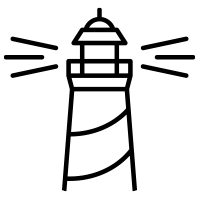On February 21, 2023, Law 2/2023 was passed, regulating the protection of persons who report regulatory violations and the fight against corruption, popularly known as the Whistleblowing Law.
Citizen participation in public actions
To date, citizen participation in the reporting of irregular activities was already provided for in cases such as:
- Investigation of actions contrary to urban planning regulations.
- Reporting of activities harmful to the environment.
- Protection of the historical-artistic heritage.
However, in practice, whistleblowers have often faced strong pressure from those who have been reported. The Whistleblowing Act is primarily intended to protect those who report violations of the law in the context of employment or professional relationships in both the public and private sectors.
Scope of protection of the Whistleblowing Law
The law not only protects active workers, but also:
- Persons who have terminated their employment relationship.
- Volunteers.
- Trainees or trainees in training.
- Candidates in selection processes.
- Persons who provide assistance to informants, as well as to their close environment.
- Legal entities owned by the informant.
This broad approach to the term “whistleblower” is intended to ensure the effectiveness of the law. In addition, the protection extends to those who make public disclosures through web platforms, social networks, media, civil organizations, trade unions, or even elected representatives, provided they meet certain requirements.
Scope of application of the Law
The Whistleblowing Act protects those who report breaches of European Union law, in accordance with Directive (EU) 2019/1937. It also covers serious or very serious criminal and administrative offenses under Spanish law.
Information systems required by law
The law provides for two communication channels for whistleblowers to report violations:
- Internal information system: Applies to both the public and private sectors, with the creation of complaint mailboxes and system managers. Its preferential use is recommended.
- External reporting system: The Independent Whistleblower Protection Authority is established to manage and process information autonomously. The whistleblower may choose to use this system depending on the circumstances and risks of retaliation.
Whistleblower protection and mitigation of sanctions
The law protects informants who comply with the established requirements and act in good faith. In addition, it contemplates the possibility of mitigating or exempting from administrative sanctions those informants who, having participated in the infraction, diligently collaborate with the authorities, provided that:
- Have ceased their infringing conduct at the time of the communication.
- Cooperate fully and continuously during the procedure.
- Provide accurate and relevant information.
- Proceed to repair the damages attributable to them.













